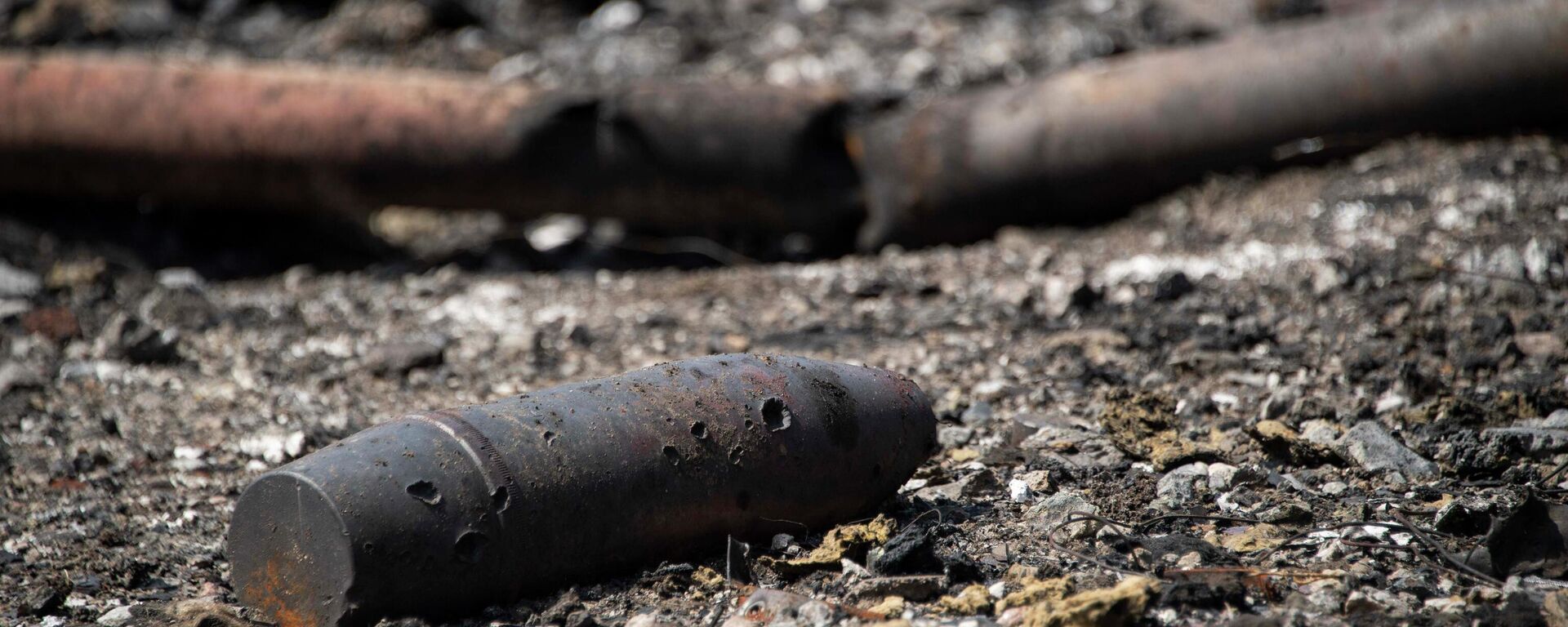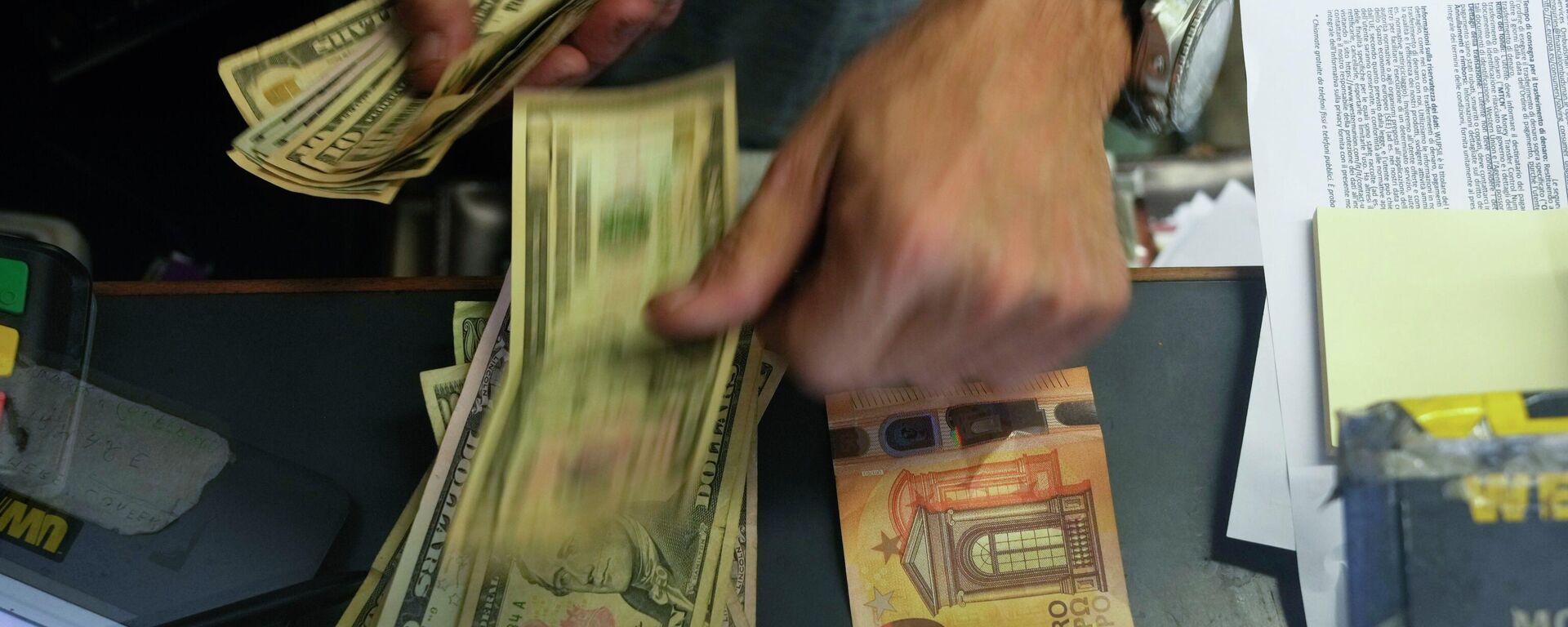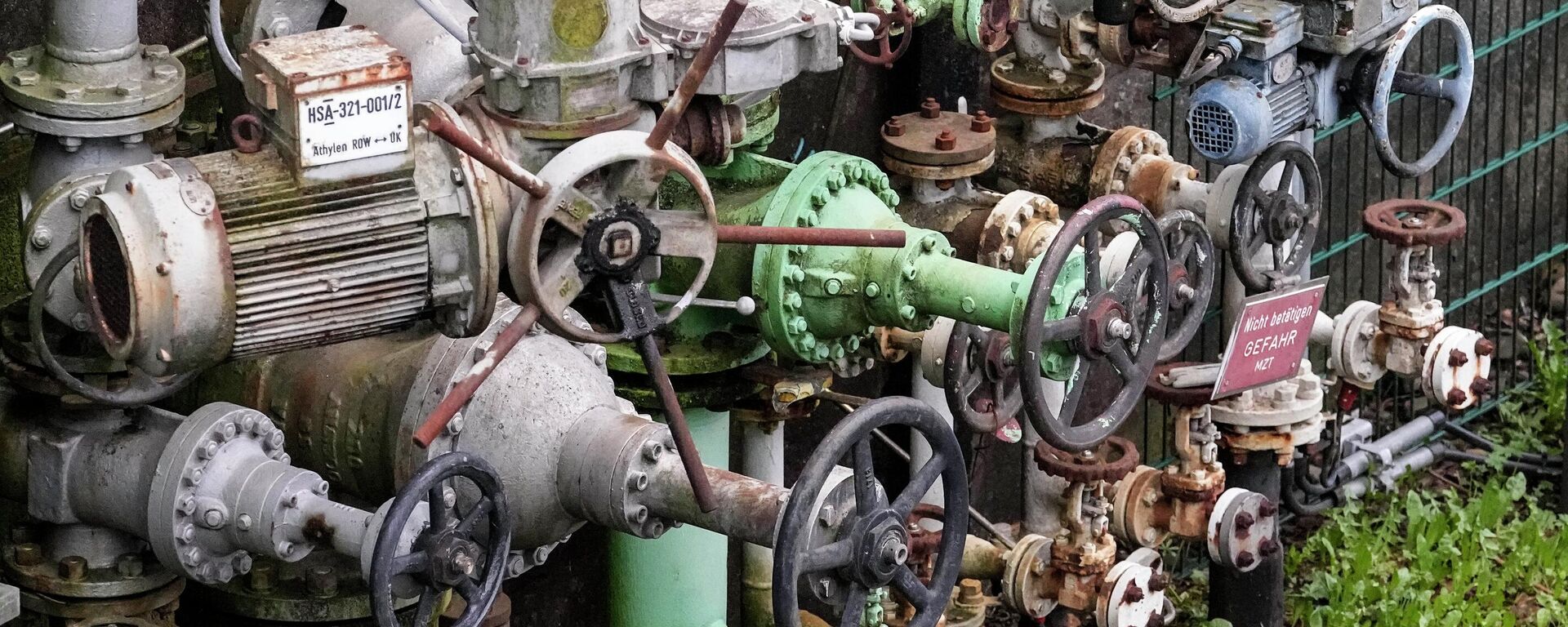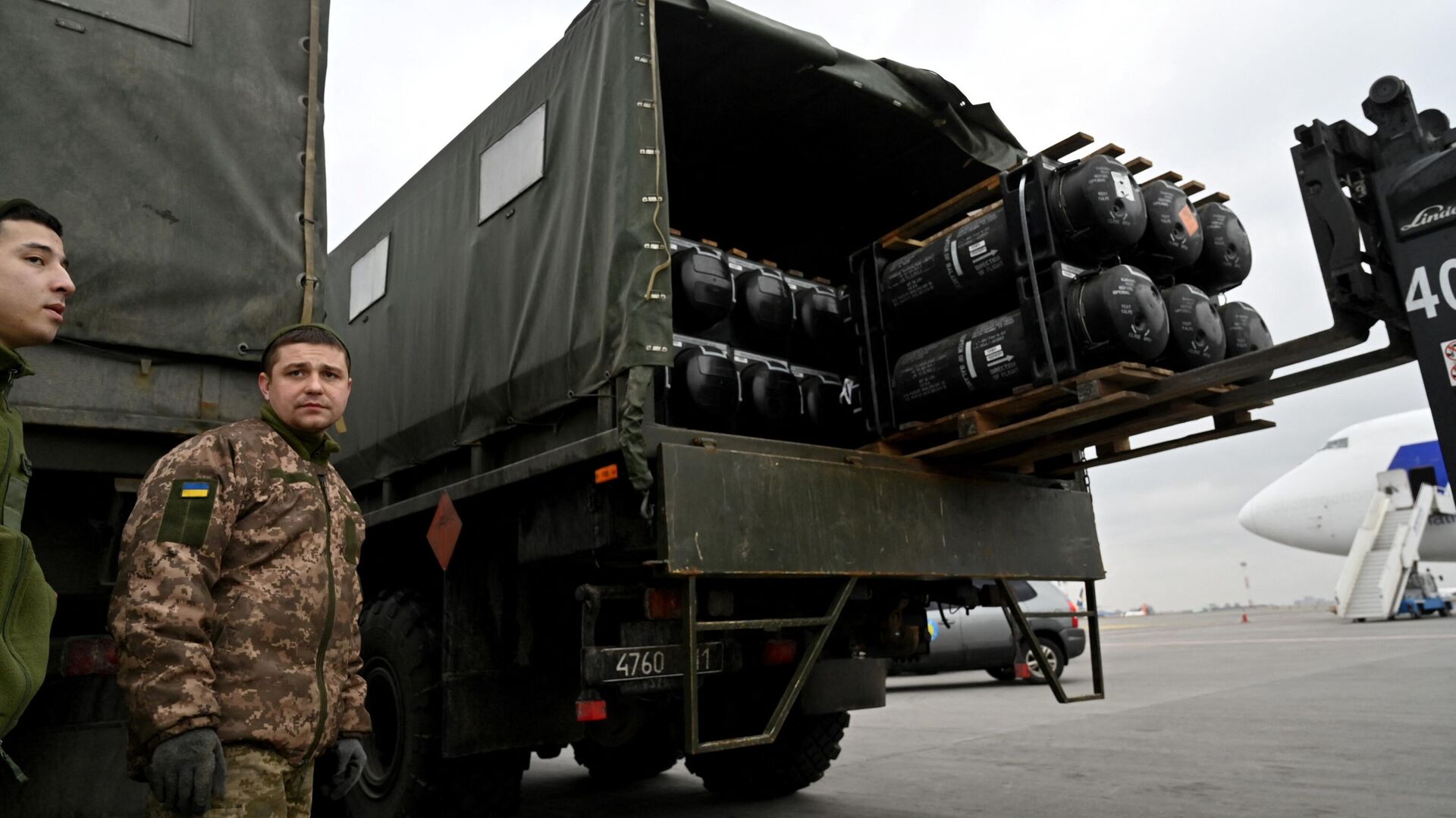https://sputnikglobe.com/20220824/why-ukraine-risks-becoming-europes-graveyard-despite-uk--eu-putting-on-brave-face----1099953941.html
Why Ukraine Risks Becoming Europe's Graveyard Despite UK & EU Putting on Brave Face
Why Ukraine Risks Becoming Europe's Graveyard Despite UK & EU Putting on Brave Face
Sputnik International
UK diplomats have been travelling to EU member states to persuade them not to cut aid to Kiev, as European authorities are growing concerned about spending on... 24.08.2022, Sputnik International
2022-08-24T17:31+0000
2022-08-24T17:31+0000
2023-05-28T15:20+0000
analysis
europe
opinion
russia
ukraine
recession
weapons
energy crisis
nuclear
military aid
https://cdn1.img.sputnikglobe.com/img/07e6/08/0a/1099454028_0:159:3079:1890_1920x0_80_0_0_9252754f3b390764ec57479b606afa62.jpg
"Ukraine seems to be the graveyard for Europe's future as a continent of good neighbors," says Willy Wimmer, a former OSCE vice president and Bundestag MP. "It is obvious that London is pursuing the policy of 'Global Britain'. They will continue with their policy, which in the last three hundred years was very effective in controlling the continent and large parts of the globe and make use of foreign potential for their own purpose."The UK has been one of the main instigators of the crisis in Ukraine from the very beginning, echoes Gilbert Doctorow, an international relations and Russian affairs analyst."[British authorities] are very keen to promote their anti-Russian policies as a leading element of their Global Britain post-Brexit foreign policy in order to claim relevance on the world stage," Doctorow says.The UK has launched a charm offensive against EU leaders trying to convince them that the cost of allowing Russia to win in Ukraine is greater than the soaring bills, according to The Telegraph. Still, it remains unclear whether London's initiative will bear any fruit, as an economic crisis is engulfing Europe.The Telegraph quotes economists warning that the Eurozone has already entered recession, "with German businesses in their worst slump for two years." The newspaper also cites Josep Borrell, who acknowledged on August 23 that Europeans had become weary of the Ukraine crisis and reluctant to bear the consequences of support for Kiev. "We will have to endure, and spread the costs within the EU," Borrell insisted.Politico also admits that senior EU officials expect a "crunch point" in the autumn or early winter, when "EU countries start to feel acute domestic economic pain from the crisis." Even though Western allies amassed €1.5 billion in commitments in early August, Politico warns that Europe’s military support for Ukraine has been decreasing since April, citing data from the Kiel Institute for the World Economy. According to the Institute's Ukraine Support Tracker, Europe’s six largest countries, namely the UK, France, Germany, Spain, Italy, and Poland, offered Ukraine no new bilateral military commitments throughout all of July.EU Support for Ukraine Not SustainableEU leaders could react variously to British diplomats' effort to step up military spending on Ukraine, according to Doctorow.Nonetheless, continued EU support for Ukraine "is not sustainable," according to Doctorow."Once the heating season begins in October and it becomes clear that the cost of heating and energy generally is greater than the great majority of the population can support, then there will be political demonstrations which will force the EU leaders to reconsider their policies on Russia," he says. "The inventory of weapons and military equipment of EU states was way below what it should have been before the Ukraine conflict and the shipments of materiel to Ukraine further reduced these stockpiles. So the continuation of such shipments is highly problematic."Cost of Living Crisis Bites Bellicose British ElitesMeanwhile, earlier this month, UK Defense Secretary Ben Wallace met counterparts from Ukraine, Denmark, and other key allies and partners in Copenhagen and pledged £250 million ($296 million) for the International Fund for Ukraine (IFU) as part of Britain's £1 billion pledge ($1.18 billion), announced on June 30. As of August 11, Britain had trained over 2,300 Ukrainian personnel in the UK under a program announced in June, according to the government's website.Prominent UK politicians mince no words in promoting their bellicose posture. Previously, Foreign Secretary Liz Truss made it clear that if she is elected as the next British prime minister, she would press the "nuclear button" should the necessity arise.Still, while the British leadership is putting on a brave face, the UK is facing economic difficulties this fall and winter, just like their European counterparts. The UK's inflation rose to 13.6% in the 12 months to July 2022, and is on course to exceed 18%. British energy prices are expected to go through the roof in January, according to Citi economists. Furthermore, over 2.5 million households in the UK are set to see their savings obliterated by the rising cost of living crisis, with one in five UK households having no savings by 2024, according to the National Institute of Economic and Social Research (NIESR).Meanwhile, less than 25% of Britons who have sheltered Ukrainians under the government’s “Homes for Ukraine” refugee scheme are eager to keep housing them for more than a year, according to the Office for National Statistics (ONS).As the UK and the EU are teetering on the brink of recession, Ukraine's crisis appears to be turning into the final nail in the coffin of the continent's stability, according to Wimmer.
https://sputnikglobe.com/20220824/ex-osce-vice-pres-uk-policies-amid-ukrainian-conflict-aimed-at-preventing-russo-german-cooperation-1099956287.html
https://sputnikglobe.com/20220822/will-winter-of-soaring-energy-costs--looming-recession-corrode-europes-unity-in-propping-up-kiev--1099844976.html
https://sputnikglobe.com/20220819/winter-is-coming-german-economy-doomed-in-wake-of-anti-russian-sanctions-scholars-say-1099778906.html
russia
ukraine
united kingdom (uk)
Sputnik International
feedback@sputniknews.com
+74956456601
MIA „Rosiya Segodnya“
2022
News
en_EN
Sputnik International
feedback@sputniknews.com
+74956456601
MIA „Rosiya Segodnya“
Sputnik International
feedback@sputniknews.com
+74956456601
MIA „Rosiya Segodnya“
europe, opinion, russia, ukraine, recession, weapons, energy crisis, nuclear, military aid, united kingdom (uk)
europe, opinion, russia, ukraine, recession, weapons, energy crisis, nuclear, military aid, united kingdom (uk)
Why Ukraine Risks Becoming Europe's Graveyard Despite UK & EU Putting on Brave Face
17:31 GMT 24.08.2022 (Updated: 15:20 GMT 28.05.2023) UK diplomats have been travelling to EU member states to persuade them not to cut aid to Kiev, as European authorities are growing concerned about spending on weapons for the Ukrainian military while the Old Continent's citizens are facing skyrocketing energy prices and galloping inflation, according to The Telegraph.
"Ukraine seems to be the graveyard for Europe's future as a continent of good neighbors," says Willy Wimmer, a former OSCE vice president and Bundestag MP. "It is obvious that London is pursuing the policy of 'Global Britain'. They will continue with their policy, which in the last three hundred years was very effective in controlling the continent and large parts of the globe and make use of foreign potential for their own purpose."

24 August 2022, 18:55 GMT
The UK has been one of the main instigators of the crisis in Ukraine from the very beginning, echoes Gilbert Doctorow, an international relations and Russian affairs analyst.
"[British authorities] are very keen to promote their anti-Russian policies as a leading element of their Global Britain post-Brexit foreign policy in order to claim relevance on the world stage," Doctorow says.
The UK has launched a charm offensive against EU leaders trying to convince them that the cost of allowing Russia to win in Ukraine is greater than the soaring bills,
according to The Telegraph. Still, it remains unclear whether London's initiative will bear any fruit, as an economic crisis is engulfing Europe.
The Telegraph quotes economists warning that the Eurozone has already entered recession, "with German businesses in their worst slump for two years." The newspaper also cites Josep Borrell, who acknowledged on August 23 that Europeans had become weary of the Ukraine crisis and reluctant to bear the consequences of support for Kiev. "We will have to endure, and spread the costs within the EU," Borrell insisted.
Politico also
admits that senior EU officials expect a "crunch point" in the autumn or early winter, when "EU countries start to feel acute domestic economic pain from the crisis." Even though Western allies amassed €1.5 billion in commitments in early August, Politico
warns that Europe’s military support for Ukraine has been decreasing since April, citing data from the Kiel Institute for the World Economy. According to the Institute's Ukraine Support Tracker, Europe’s six largest countries, namely the UK, France, Germany, Spain, Italy, and Poland, offered Ukraine no new bilateral military commitments throughout all of July.

22 August 2022, 10:55 GMT
EU Support for Ukraine Not Sustainable
EU leaders could react variously to British diplomats' effort to step up military spending on Ukraine, according to Doctorow.
"Macron will speak out of both sides of his mouth in keeping with his record as a chameleon," the analyst suggests. "He will decry the inflation and economic woes ahead while insisting that the West must not agree to compromises with Russia. Germany will also blow hot and cold. Only the Baltics and Poland will uniformly embrace the most aggressive and obnoxious policies towards Russia that may come from Britain."
Nonetheless, continued EU support for Ukraine "is not sustainable," according to Doctorow.
"Once the heating season begins in October and it becomes clear that the cost of heating and energy generally is greater than the great majority of the population can support, then there will be political demonstrations which will force the EU leaders to reconsider their policies on Russia," he says. "The inventory of weapons and military equipment of EU states was way below what it should have been before the Ukraine conflict and the shipments of materiel to Ukraine further reduced these stockpiles. So the continuation of such shipments is highly problematic."

19 August 2022, 18:21 GMT
Cost of Living Crisis Bites Bellicose British Elites
Meanwhile, earlier this month, UK Defense Secretary Ben Wallace met counterparts from Ukraine, Denmark, and other key allies and partners in Copenhagen and pledged £250 million ($296 million) for the International Fund for Ukraine (IFU) as part of Britain's £1 billion pledge ($1.18 billion), announced on June 30. As of August 11, Britain had trained over 2,300 Ukrainian personnel in the UK under a program announced in June, according to the government's website.
Prominent UK politicians mince no words in promoting their bellicose posture. Previously, Foreign Secretary Liz Truss made it clear that if she is elected as the next British prime minister,
she would press the "nuclear button" should the necessity arise.
"When someone listens to Mrs. Truss and her words with regard to the use of the nuclear arsenal, it is fair to speak of a 'present danger' for peace and security," says Wimmer. "The people in Western European countries cannot understand why there is no effort by our governments for 'end of hostilities,' peace and all efforts to stop the bloodshed. Instead of this will of their peoples, they are fueling war."
Still, while the British leadership is putting on a brave face, the UK is facing economic difficulties this fall and winter, just like their European counterparts. The UK's inflation rose to 13.6% in the 12 months to July 2022, and is on course to exceed 18%. British energy prices
are expected to go through the roof in January, according to Citi economists. Furthermore, over 2.5 million households in the UK are set to see their savings obliterated by the rising cost of living crisis, with one in five UK households having no savings by 2024,
according to the National Institute of Economic and Social Research (NIESR).
Meanwhile, less than 25% of Britons who have sheltered Ukrainians under the government’s “Homes for Ukraine” refugee scheme
are eager to keep housing them for more than a year, according to the Office for National Statistics (ONS).
As the UK and the EU are teetering on the brink of recession, Ukraine's crisis appears to be turning into the final nail in the coffin of the continent's stability, according to Wimmer.
"There is only one idea which matters: give peace a chance," Wimmer says. "I served as the German minister of defense during the last NATO exercise in Cold War times in spring 1989, before unification. The war game was conventional and nuclear. Nothing was left from Europa as a result of the war. Without peace in Europe there will be no future for all of us."







